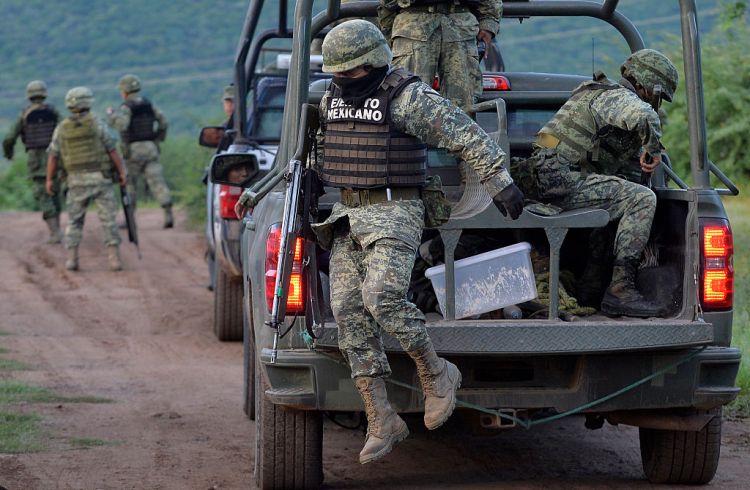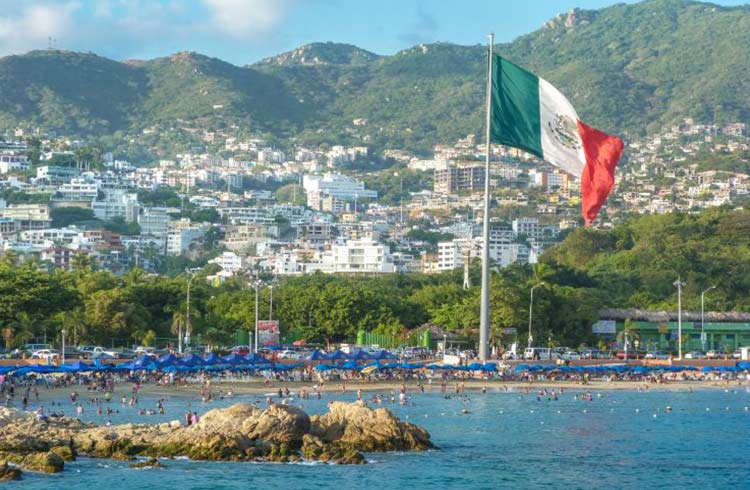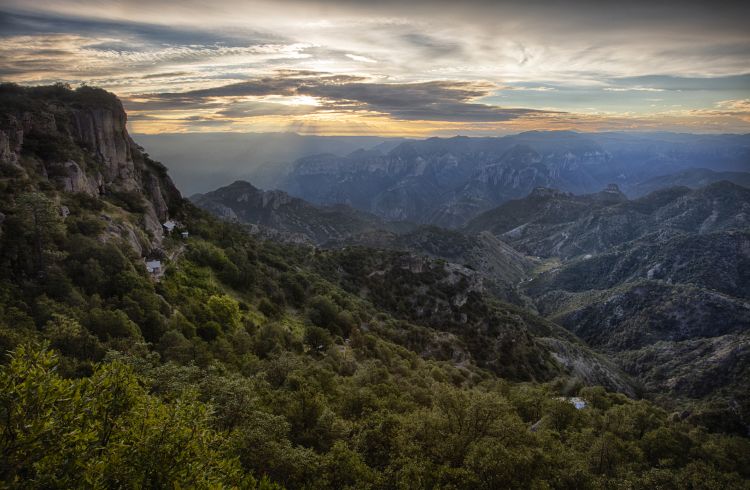Cartel Violence in Mexico: 3 Important Travel Safety Tips
Most visitors have a great time in Mexico despite news reports about drugs and drug-related violence. Here’s what you need to know to stay safe and within the law.
 Photo © Getty Images/PEDRO PARDO - Stringer
Photo © Getty Images/PEDRO PARDO - Stringer
Mexico is the most popular travel destination for US residents by a very generous margin, at least doubling the total of its nearest competitor, Canada. And while the overwhelming majority of visitors to Mexico have a perfectly safe and happy time there, cartel-related violence – homicide, kidnapping, carjacking and robbery – is on the rise across the country, and if your aim is to stay out of harm’s way while you’re there, there are a few factors to bear in mind.
- Places to avoid in Mexico
- How to avoid being a victim of crime in Mexico
- Medication and the law in Mexico
Places to avoid in Mexico
The US State Department has issued a Level 4 warning against travel to five parts of Mexico: Tamaulipas in the country’s northeast corner; and the Pacific states of Sinaloa (the home of Mexico’s oldest and largest criminal organization), Colima, Guerrero and Michoacan.
US border cities, such as Tijuana, Ciudad Juarez, Nuevo Laredo, Matamoros and Piedras Negras, remain trouble spots, but it’s important to remember that the map of cartel-contested territories is constantly changing. The gangs aren’t fighting solely over control of the drug trade, but a gamut of criminal activities, from illegal logging and mining to human trafficking and huachicoleo (the theft and illicit sale of fuel), as well as muscling in on legitimate businesses, such as livestock producers, fisheries and farmers (Michoacan is the world’s biggest avocado-growing region, and the only state in Mexico that is fully authorized to export to the American market).
The global obsession with Mexico’s narco culture means that the extent of the impact of organized crime and political corruption on ordinary Mexicans often goes unreported. For those wanting to do their own research, the InSight Crime website is invaluable.
A further 11 states have been given Level 3 – “reconsider traveling to” – status, which brings the blacklist total to 16 out of 32 states. That should provide the budding visitor with food for thought, as the US government has limited ability to provide emergency services in those areas where US government staff are prohibited or restricted from traveling.
Popular tourist spots are usually far safer as the authorities go to great lengths and expense to make them so, yet in 2021 and 2022, two tourists were killed in a shooting in Playa del Carmen, four American travelers were injured when gunmen opened fire on a beach in Cancun, and a travel blogger from California and a German tourist were killed in the crossfire during a drug-gang shootout in Tulum.
How to avoid being a victim of crime in Mexico
As I once said to a friend, “Put your phone away. I’m not saying you’re going to get robbed, but if someone in this neighborhood gets robbed in the next 30 minutes, it’s going to be you.” As it turned out, it was.
When traveling, solo or with friends, make caution your watchword. There is safety in numbers, so avoid visiting remote areas unfamiliar to tourists. It’s also preferable to avoid driving overnight, and to stick to toll roads and first-class coach services between cities as illegal roadblocks and highway robberies are becoming common in states such as Guerrero, Michoacan, Oaxaca and Chiapas. The rest may read like an idiot’s guide to not coming a vacation cropper, but it’s worth learning by heart:
- learn some basic Spanish
- do not dress to impress
- keep your valuables out of sight
- never leave your drink unattended
- use car-sharing and ride-hailing apps rather than street taxis and public transport (which pose particular dangers for female travelers).
Medication and the law in Mexico
If you need to take prescription drugs while in Mexico, ensure you travel with the necessary paperwork (a doctor’s letter or prescription), but note that some drugs that are legal in your home country may not be in Mexico, and you may be subject to arrest for arriving in the country with a controlled substance. Over-the-counter medicines widely used in the US, such as Actifed, Sudafed and Vicks inhalers, which contain pseudoephedrine, are prohibited. To find out more, check out our Mexico travel health article.
Don’t commit any crimes yourself. Foreign nationals who commit illegal acts under Mexican law have no special privileges and are subject to full prosecution under the Mexican judicial system. Trafficking proscribed drugs and possession beyond the legal amounts set out for personal use are federal offenses, and convicted offenders, for whom bail is not an option, face jail sentences of up to 25 years. It’s not uncommon for foreigners charged with drug offenses to be detained for up to two years before a verdict is reached.
Related articles
Simple and flexible travel insurance
You can buy at home or while traveling, and claim online from anywhere in the world. With 150+ adventure activities covered and 24/7 emergency assistance.
Get a quote

No Comments